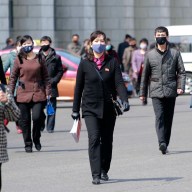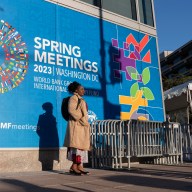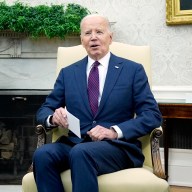 A Medford man is accused of manufacturing counterfeit MBTA passes. Photo: Morgan Rousseau
A Medford man is accused of manufacturing counterfeit MBTA passes. Photo: Morgan Rousseau
A Medford man allegedly cost the MBTA $200,000 by making and distributing thousands of counterfeit transit passes over the last six months.
Casey Kolenda, 27, made obscene gestures at reporters this morning during his arraignmentin Somerville District Court, the Boston Globe reported. He facesfive counts of counterfeiting a value more than $10,000.
Kolenda hasa criminal history dating back to 2003, according to Judge Robert Brennan, who revoked his bail on open District Court cases, which involved motor vehicle violations and an assault on his own brother, and set $150,000 bail in the counterfeiting case.
Massachusetts State Police and MBTA Transit Police detectives arrested Kolenda without incident at his Medford home, where the fake passes were allegedly made, Attorney General Martha Coakleysaid.
“We allege that this defendant orchestrated a scheme to manufacture and distribute counterfeit MBTA passes for his own personal gain while defrauding the Commonwealth of hundreds of thousands of dollars,” Coakley said. “Our investigation with the MBTA remains ongoing.”
According to MBTA Spokesman Joe Pesaturo, every transaction at an MBTA farebox, gate, and fare vending machine is recorded to a central database that Transit Police and authorized MBTA personnel can use to report on suspicious activity and ultimately block fraudulent use. The practice has been done for the counterfeit tickets identified as part of this investigation, Pesaturo said.
“The MBTA has the capability to block the use of any CharlieTicket at any moment. CharlieTickets have been in use since 2005, and this is the only counterfeiting case. But out of an abundance of caution, the MBTA will increase its monitoring of transactions at fare gates and fare boxes,” Pesaturo said.
A Revenue Analyst in the MBTA Treasurer’s office will conduct regular checks to look for any unusual trends or patterns, and the analyst will also meet monthly with the MBTA’s Chief Technology Officer and Chief Financial Officer, Pesaturo said.
Less than 25 percent of MBTA customers use CharlieTickets.
“Demonstrating again that the MBTA will not tolerate fraud, Transit Police detectives worked closely with State Police investigators and the Attorney General’s office to bring these charges forward,” said MBTA Transit Police Chief Paul MacMillan. “Our honest, fare-paying customers deserve and expect our full attention to this type of illegal activity. Let this serve as a warning to anybody else who thinks they can perpetrate such fraud.”
His arrest comes after an extensive investigation that began in August 2013, when Transit Police discovered the existence of hundreds of unauthorized tickets in use by riders on the MBTA’s subway and bus systems.
Coakley’s office and state police joined the investigation in September. Authorities identified multiple monthly Link Passes that were purchased legitimately and subsequently used to create hundreds of forged tickets used by riders.
Kolenda allegedly orchestrated a scheme to create the counterfeit $70 monthly MBTA subway and bus passes, known as “Link Passes,” between October 2013 and March 2014, Coakley said.
The investigation revealed that the electronic data stored on the Link Pass magnetic strip was copied using a magnetic strip reader, also known as a “skimmer.”
The electronic data was downloaded onto the magnetic strips of hundreds of MBTA stored-value cards that Kolenda purchased for as little as five cents at ticket kiosks. Kolenda then disguised the forged passes by applying contact paper that bore the production history of the original Link Pass, as well as the MBTA’s trademarked “T” logo.
Similar in appearance and now encoded with the electronic data copied from the Link Pass, the counterfeit cards could be used at any MBTA fare gate in the same manner as the original pass, Coakley said.
The joint investigation revealed that hundreds of counterfeit passes bearing the electronic data of the original were distributed and used on a monthly basis by MBTA riders, sometimes more than 15,000 times in one month.
Investigators estimate that the lost revenue attributable to the forged tickets manufactured and distributed by Kolenda approaches $200,000.
Follow Morgan Rousseau on Twitter: @MetroMorgan
Follow Metro Boston on Twitter: @MetroBOS












